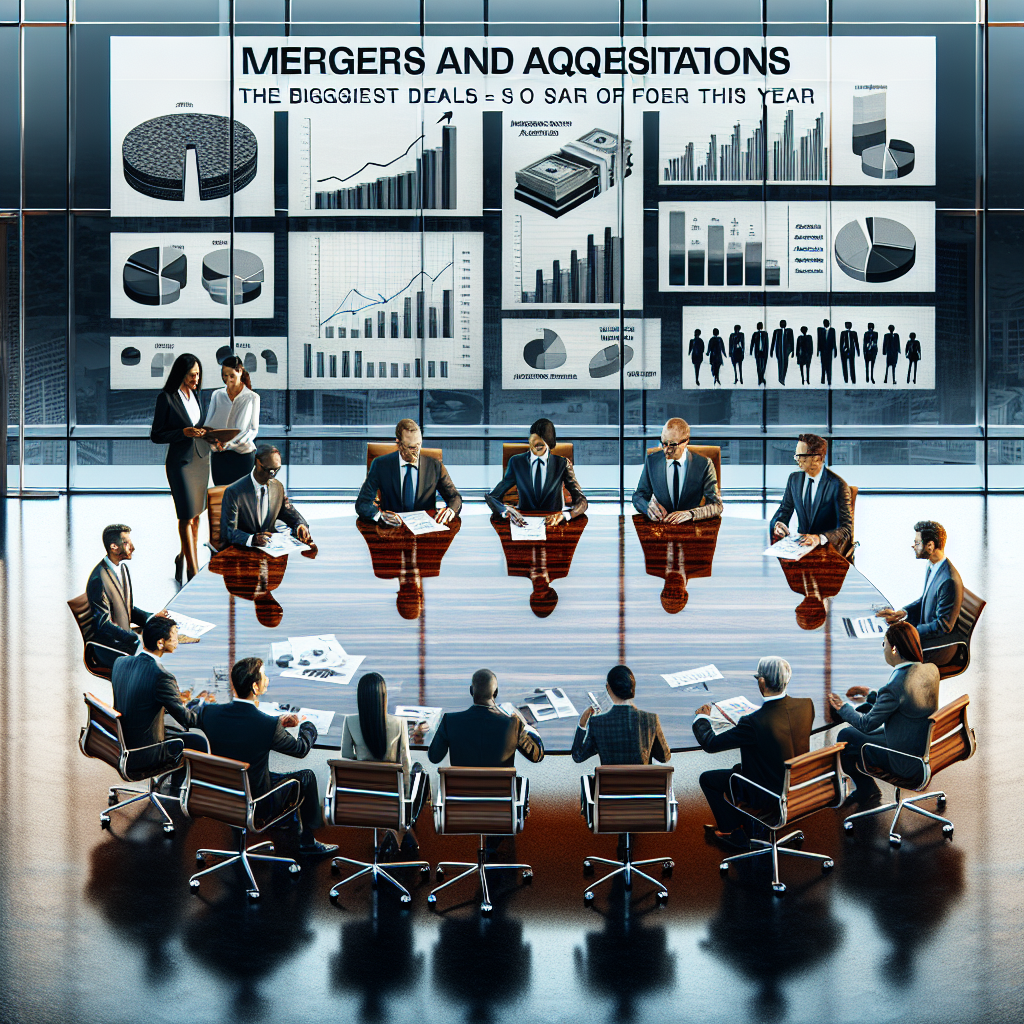
This year, mergers and acquisitions have taken the financial world by storm. Companies are constantly evolving, and so are their strategies for growth. Some of the biggest transactions are reshaping entire industries. Let’s dive into the most significant deals of the year and unpack what they mean for the market.
Contents
The Big Players
Corporate giants are merging like never before. We’re talking about multi-billion-dollar deals that impact global markets. These aren’t just numbers; they tell stories of ambition, strategy, and sometimes, sheer audacity.
Why Are Companies Merging?
Mergers and acquisitions (M&A) allow companies to grow faster than they could organically. They can acquire new technologies, enter new markets, or just eliminate competition. It’s a power play in the business world, and the stakes are high.
Notable Deals
Here’s a snapshot of the most significant M&A deals this year.
| Company A | Company B | Deal Value (in billion $) | Sector |
|---|---|---|---|
| Tech Giant Inc. | InnovateTech Ltd. | 45 | Technology |
| HealthCorp | MedAdvantage | 30 | Healthcare |
| RetailCo | ShopMart | 25 | Retail |
| EnergyPlus | GreenTech | 20 | Energy |
| FinTrust | Secure Bank | 18 | Finance |
These deals are not just about buying companies; they’re about shaping futures.
What Drives These Deals?
Market Expansion
Businesses are eyeing new regions and customers. Acquiring a company with established market presence makes perfect sense.
Cost Efficiency
Merging can reduce operational costs. Companies can streamline processes and cut redundancies, making operations leaner and more efficient.
Innovation Acquisition
Instead of building new capabilities from the ground up, acquiring an innovative firm can be faster and less risky.
Are These Deals Always Successful?
Not every M&A deal is a slam dunk. Cultures clash, and anticipated synergies fail to materialize. However, the potential rewards drive companies to take these calculated risks.
Insightful Questions
What are the challenges companies face post-acquisition?
Post-acquisition, integration is critical. Companies grapple with merging cultures and operations. The workforce may resist change, leading to disruptions. Moreover, companies must align goals and communication styles. Failure to do so can result in losing key talent or missing strategic targets. The integration phase can make or break a deal’s success.
How do these deals impact consumers?
M&A deals can lead to better products and services. Companies often combine strengths to innovate. However, reduced competition can lead to higher prices. It’s a delicate balance. Consumers benefit when companies compete to offer superior value. On the flip side, monopolistic behaviors can be detrimental.
Why do some deals fail?
Deals falter for several reasons. Overvaluation is a common pitfall; companies sometimes pay too much. Due diligence might miss market dynamics or cultural misalignments. Leadership changes post-merger can lead to instability. Moreover, regulatory hurdles can delay or cancel deals.
The Year’s Impact
This year, mergers and acquisitions are reshaping markets and setting new benchmarks. Whether it’s a technology giant acquiring a niche innovator or healthcare firms consolidating to offer better services, each deal comes with lessons.
The Role of Technology
Technology plays a pivotal role in M&A activities. Digital tools enhance due diligence processes and streamline integrations. The landscape is more dynamic and informed than ever, fueling more strategic decisions.
Future Prospects
M&A activity is not slowing down. As industries evolve, new opportunities will emerge. Companies that adapt swiftly will thrive. They must be ready to pivot and seize opportunities.
Resources for Dive-Deep
- Mergers and Acquisitions: The Biggest Deals So Far This Year
- Trends in Mergers and Acquisitions
- How Mergers Impact Markets
Wrapping It Up
Mergers and acquisitions this year have been record-breaking, audacious, and transformative. As companies pursue growth through consolidation, the market watches closely. Each deal unfolds a narrative of ambition, risk, and potentially, reward.
For curious minds, it’s essential to stay informed about these developments. Understand the strategies, outcomes, and broader market implications. In a constantly evolving business landscape, knowledge is power.






